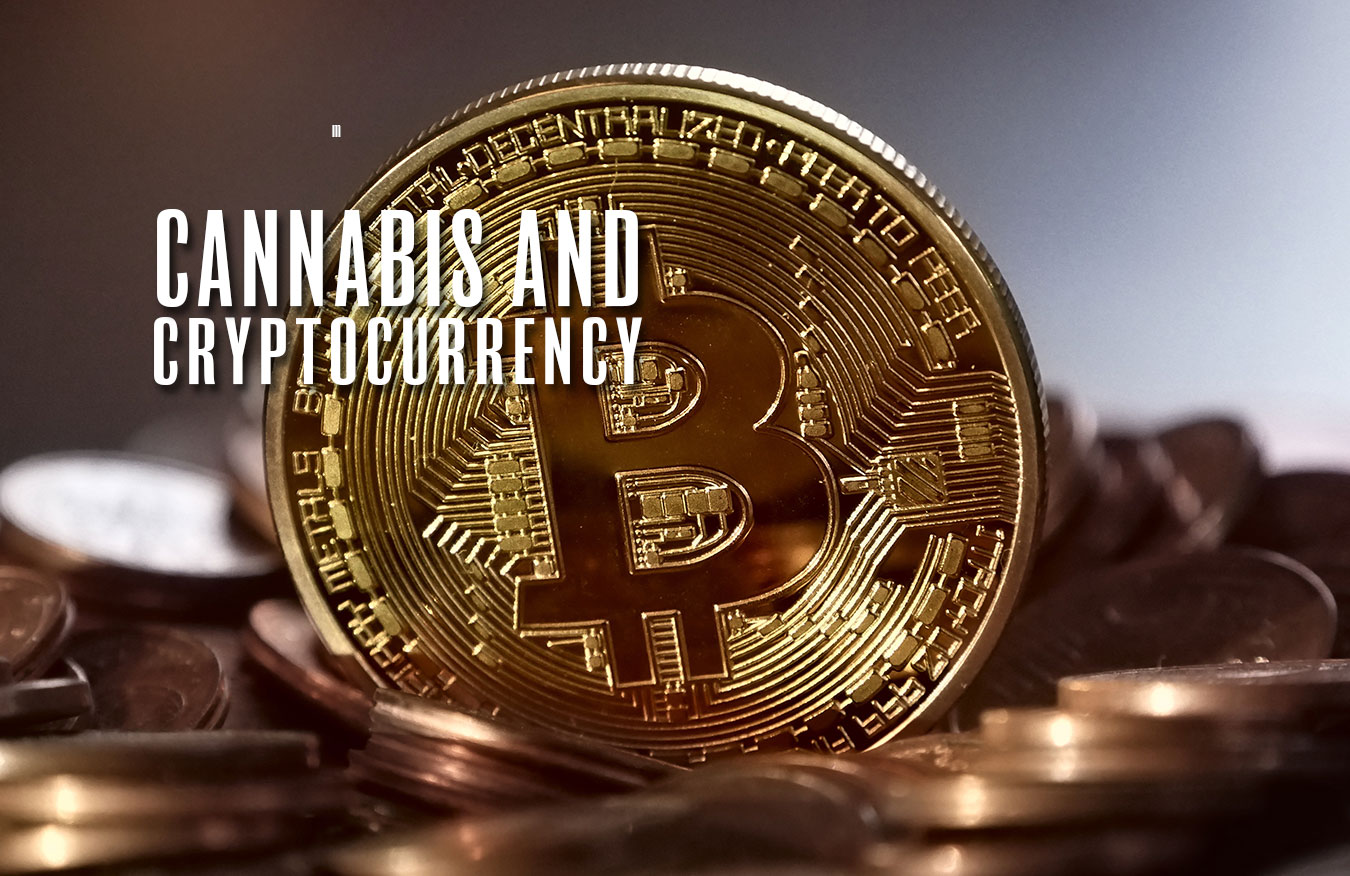Lately cannabis and cryptocurrency have made strange bedfellows. Or, is it that strange? One of the struggles in the cannabis industry is dealing with money and in particular, dealing with large sums that go between contractors like a lab or distributor. Federal law prohibits a lot of retailers and distributors from working with traditional banks. Decentralized finance, which is what cryptocurrency makes possible, is one way to decouple transactions from the established banking system. This parallel financial system is a perfect complement to cannabis — but will it remain so?
Decentralized finance is what cryptocurrency makes possible. Think of a sort of parallel universe of banking. Instead of a central bank with a vault, the records for the bank’s holdings are stored on many computers, and changes to the ledgers have to be confirmed by this network of computers — that’s the blockchain. Cryptocurrency uses blockchain tech to create its own self-regulating currency. Depending on how the “money” is handled, cryptocurrencies have an exchange rate for their coins, or tokens. The tokens might be earned in various ways (usually involving cash, but Bitcoin are “mined” using powerful computers). Cryptocurrency uses the blockchain for security, but also for anonymity. A decentralized financial system relies on the rules baked into the systems it plugs into, not scrutiny by a central authority. The security, anonymity, and decentralized nature of cryptocurrency is an obvious choice for the cannabis industry.

Right now, businesses in the over 30 states where cannabis is legal have to resort to cash settlements. Dealing with large sums of cash that can’t be taken to a bank has resulted in some, let’s say, creative “alternative” banking, which includes burying cash in the ground. Cannabis distributors would prefer the cannabis be in the ground, not their cash. That’s where this parallel universe of banking comes in.
First, there are ways of turning cash into cryptocurrency. From LibertyX to Wall of Coins, most of these methods don’t require you to verify your identity, which is something decentralized finance advocates cite as a benefit. You just find a physical location, deposit your money and get your coins. For those in the cannabis industry, it’s sometimes the optimal solution. To the U.S. government and its own central banks, it worries officials about money laundering. The irony? Because cannabis is still on Schedule 1 of the Controlled Substances Act, banks can be cited for money laundering if they handle money made from selling cannabis. Until there’s a Federal solution to that, it will remain a problem.
Nature and business hate a vacuum, however, so now we have cryptocurrencies just for cannabis. Aptly-named PotCoin, for example, says it wants to be the settlement currency for cannabis. But it has competition, and not just from Bitcoin. There are dozens of so-called “alt” coins that pop up each year. Many crash and burn, never to be heard from again. Some take a unique angle to creating coins to begin with, like one Canadian company that said it would put its mining servers in a room so their heat could warm its grow room, which, along with those servers, would all be powered by solar energy. There’s also aptly-named CannabisCoin, developed for point-of-sale. Still, Bitcoin is essentially what all other cryptocurrencies compare themselves to, and can be thought of as the “gold standard” for tracking coin values.
It’s important to remember that right now the cryptocurrency world is a fraction of a percent of the global economic system. Similarly, the market cap of these cannabis-related coins is a fraction of that fraction. However, the decentralized financial system being built could remain a part of the cannabis industry long after Federal law removes restrictions on traditional banks. You might not be able to fight city hall, but you can go around it.














